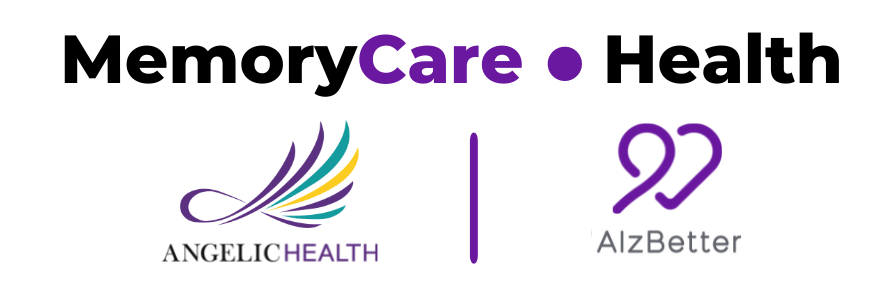FAQ
If you have questions about our FREE DEMENTIA ASSESSMENT, our 10-WEEK PROGRAM or any other areas of the Medicare benefit, click on the question below. Answers will show beneath each question once clicked.
This is a fairly new benefit offered by Medicare for people who have a cognitive impairment. It starts with a detailed dementia specific assessment that includes a cognitive screening, identifies the level of dementia (if any), medication review with a focus on medications that affect dementia behaviors, caregiver stresses, home safety and much more.
Based on the assessment results, a customized plan of care is developed and reviewed by a nurse practitioner. Additionally, a certified dementia coach works in tandem with the nurse practitioner to help the care partners with challenging behaviors, areas of stress and find community resources.
The goal of the program is to help not only the individual who is living with dementia, but also really focuses on supporting the people in their life who make up their care team. This could be a spouse, child, care partners that are hired or anyone else who is part of the support team.
This program will be billed to Medicare, however, there is a co-payment. If you have a supplemental policy, it usually covers the cost of the co-pay. Our staff will verify billing information prior to performing the assessment and let you know if there will be any out of pocket costs to you.
The cop-pay usually runs around $50-60 depending on your Medicare plan and location. If you do not have a supplemental policy, we will let you know the cost of the co-pay prior to starting service
We first verify your insurance coverage and once that is done, your coach will reach out to you and send a link via email for you to fill out the assessment. This usually takes 20-30 minutes for you to complete.
Once we get that back, your coach will review the assessment with you and gather some additional information. This is done via telephone or preferably, through a video chat. The coach then works with the nurse practitioner to create your customized plan, identify community resources that you could be eligible for or would otherwise be a benefit to you.
The nurse practitioner will then reach out to you via video chat and review the plan of care, medications and answer any clinical questions you may have.
Additionally they will send you short videos to help provide education based on specific problems you have expressed during the interview. Lastly, they will be sending you a free copy of our book that offers some great advice on caring for a person living with dementia.
- A detailed dementia assessment
- A customized plan of care
- A medication review
- A list of community resources
- Educational videos
- Our AlzBetter at home manual
- A coaching session with a certified dementia coach
- A review with a nurse practitioner who has advanced dementia training
At this time, this is a requirement. We may be able to set up an in-person assessment but would have to check on the availability of the coach and nurse practitioner for this.
Appointment times vary but we typically are able to start the process right away with very little wait.
The assessment that is emailed to you usually takes 20 -30 minutes for you to complete. After that, your coach will contact you to review the assessment and discuss any challenging behaviors or other areas of stress you may be experiencing. This usually takes 40 – 60 minutes, depending on how many questions or concerns you may have.
After that, your nurse practitioner will contact you to review the results of the assessment and go over your customized plan of care and discuss any medication concerns you may have. This usually takes 15-30 minutes.
The assessment and review are typically performed via video conference, however , they may be able to be performed in our office if you prefer, although this may not apply to all locations.
No. The interview and review are typically performed with the person who is the primary support person. If the cognitive impairment is in the early stages, the assessment and review may be done with both the person living with dementia and their support person
We accept Medicaid is often accepted but will need to be confirmed prior to starting services.
If the person in question shows signs of a cognitive impairment and is covered by Medicare, they should qualify for the benefit. Please read below what is considered normal signs of aging vs symptoms of dementia to help you determine if your loved one qualifies. We would also be happy to discuss this over a call to help you as well.
According to the CDC, Dementia is not a specific disease but is rather a general term for the impaired ability to remember, think, or make decisions that interferes with doing everyday activities.
People often use the term dementia interchangeably with Alzheimer’s, but in fact, Alzheiimer’s is just one type of dementia along with other types such as Vascular, Lewy Body, Fronto-temporal etc.
Because there are multiple types of dementia, symptoms can vary. Memory loss does not always occur so a more holistic view needs to be taken. Here is a list of the more common symptoms:
- Memory loss that disrupts daily life
- Reduced ability to focus for periods of time and pay
- Issues with communicating through speaking, reading and writing, as well as the ability to understand. Using unusual words to refer to familiar objects and repeating things
- Uncharacteristically poor reasoning, judgement and problem solving
- Difficulty completing familiar tasks
- Confusion with time or place
- Trouble understanding visual images and spatial relationships
- Misplacing things and losing the ability to retrace steps
- Withdrawal from work or social activities
- Changes in mood and personality
- Getting lost in familiar places
Dementia is not a normal part of aging. According to the CDC – Normal aging may include weakening muscles and bones, stiffening of arteries and vessels, and some age-related memory changes that may show as:
- Occasionally misplacing car keys
- Struggling to find a word but remembering it later
- Forgetting the name of an acquaintance
- Forgetting the most recent events
Normally, knowledge and experiences built over years, old memories, and language would stay intact.
After you have completed your assessment, your coach will enroll you into our website. You will receive login information via email. Just follow the instructions and you will gain access to our educational tools.
We have a mobile app that you will also have access to. Once your coach has signed you up and you have registered, you will also have access to the mobile app. You will need to download the app at the Apple App Store or Google Play store.
The app will give you access to the same educational tools along with support groups and a host of other information and tools.
A healthcare professional with advanced training in dementia typically performs a series of validated tests to look at memory, problem solving and other cognitive abilities. If these tests produce results that may indicate dementia, they may refer the patient for further testing such as blood testing and brain scans using a CT or MRI. The nurse practitioner that oversees each assessment is highly trained in advanced dementia protocols.
According to the CDC:
- Alzheimer’s disease. This is the most common cause of dementia, accounting for 60 to 80 percent of cases. It is caused by specific changes in the brain. The trademark symptom is trouble remembering recent events, such as a conversation that occurred minutes or hours ago, while difficulty remembering more distant memories occurs later in the disease. Other concerns like difficulty with walking or talking or personality changes also come later. Family history is the most important risk factor. Having a first-degree relative with Alzheimer’s disease increases the risk of developing it by 10 to 30 percent.
- Vascular dementia. About 10 percent of dementia cases are linked to strokes or other issues with blood flow to the brain. Diabetes, high blood pressure and high cholesterol are also risk factors. Symptoms vary depending on the area and size of the brain impacted. The disease progresses in a step-wise fashion, meaning symptoms will suddenly get worse as the individual gets more strokes or mini-strokes.
- Lewy body dementia. In addition to more typical symptoms like memory loss, people with this form of dementia may have movement or balance problems like stiffness or trembling. Many people also experience changes in alertness including daytime sleepiness, confusion or staring spells. They may also have trouble sleeping at night or may experience visual hallucinations (seeing people, objects or shapes that are not actually there).
- Fronto-temporal dementia. This type of dementia most often leads to changes in personality and behavior because of the part of the brain it affects. People with this condition may embarrass themselves or behave inappropriately. For instance, a previously cautious person may make offensive comments and neglect responsibilities at home or work. There may also be problems with language skills like speaking or understanding.
- Mixed dementia. Sometimes more than one type of dementia is present in the brain at the same time, especially in people aged 80 and older. For example, a person may have Alzheimer’s disease and vascular dementia. It is not always obvious that a person has mixed dementia since the symptoms of one type of dementia may be most prominent or may overlap with symptoms of another type. Disease progression may be faster than with one kind of dementia.

